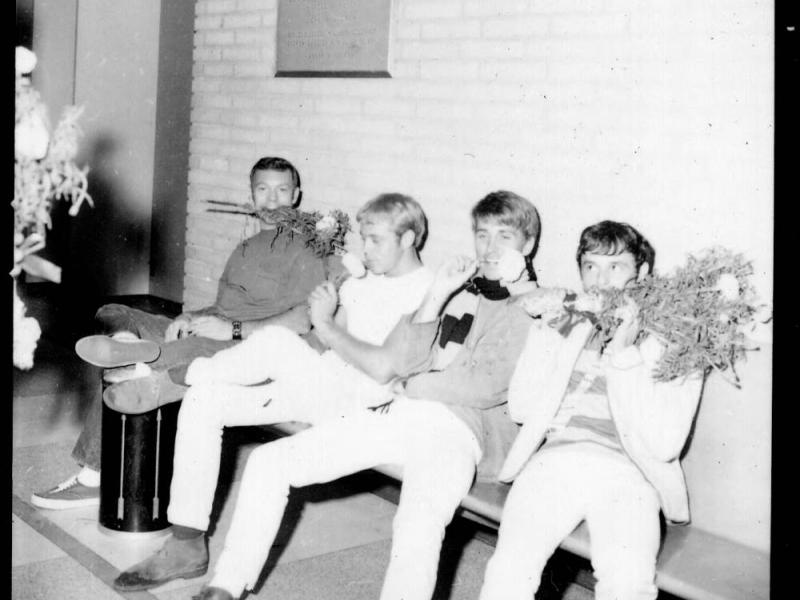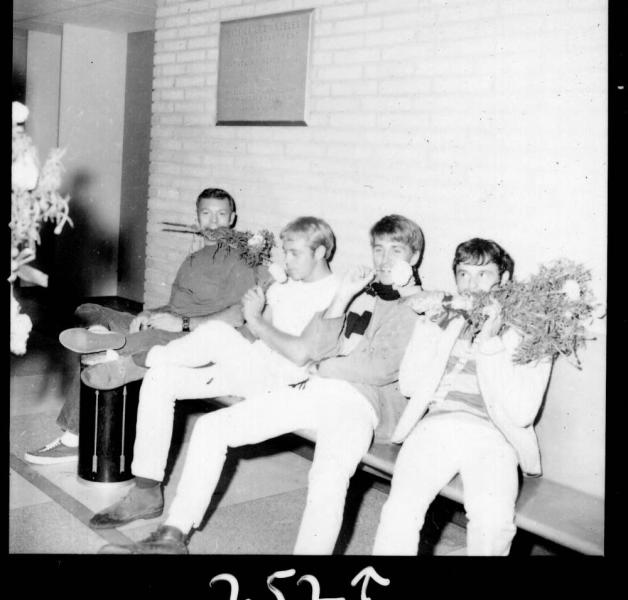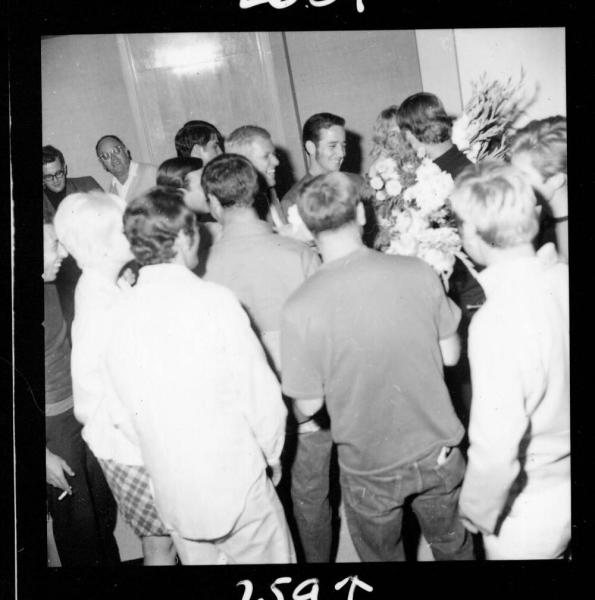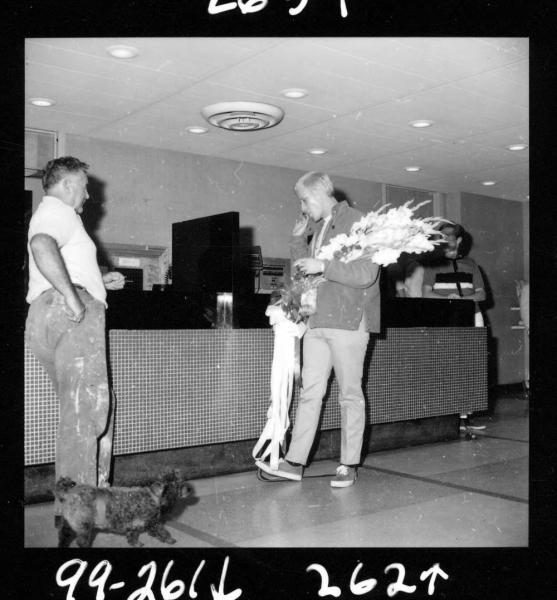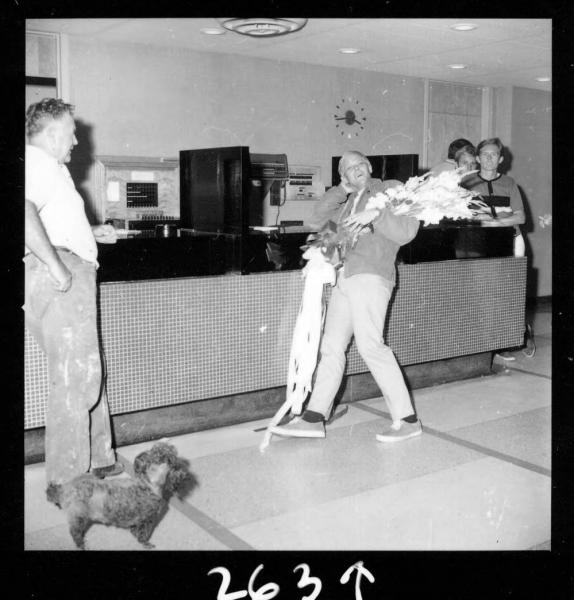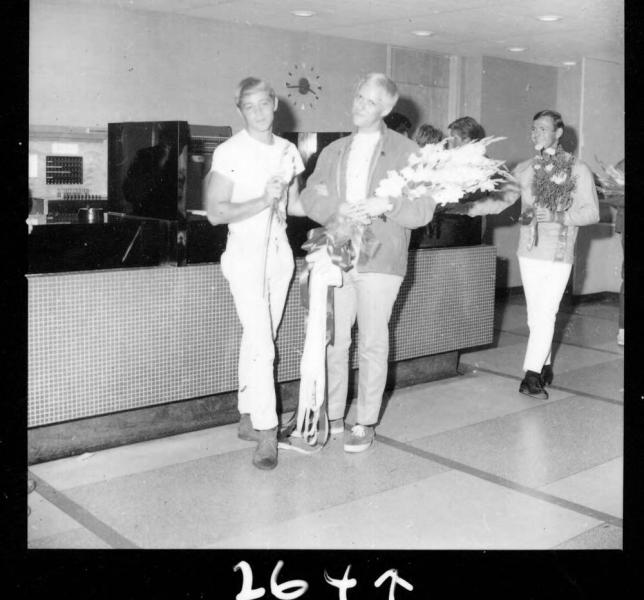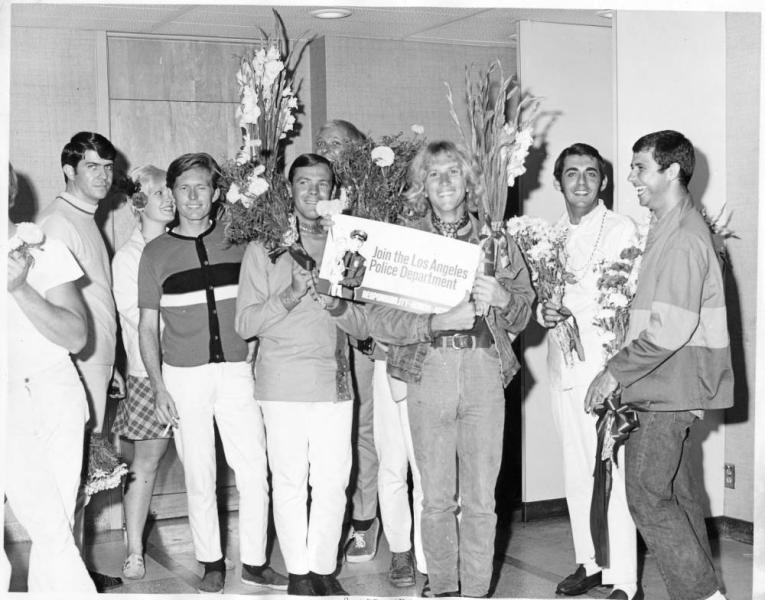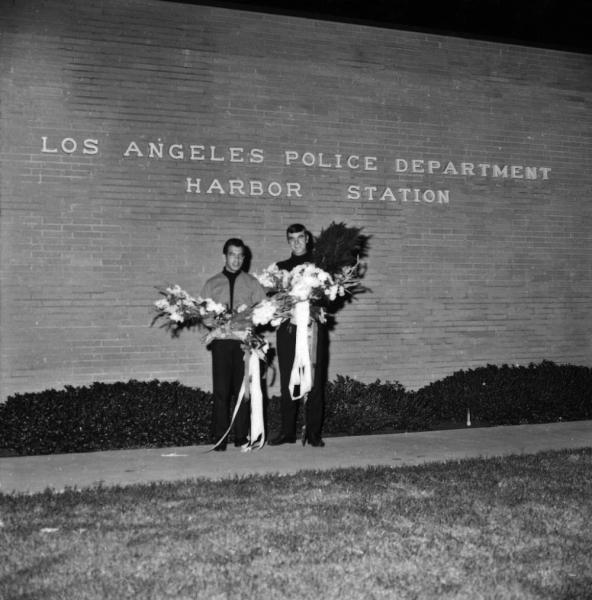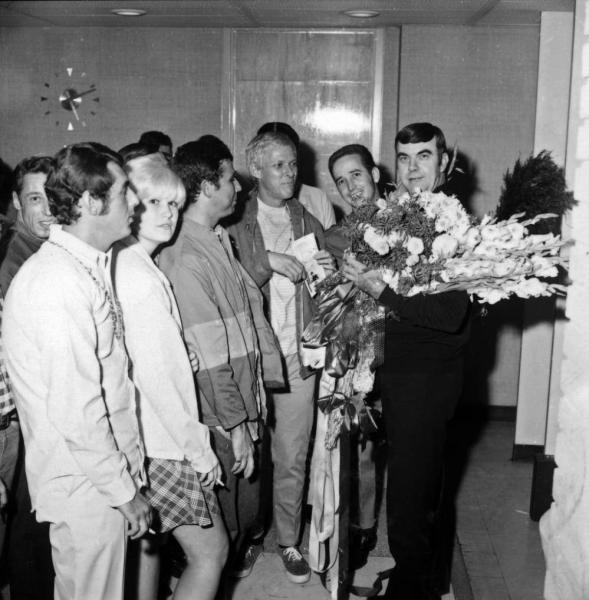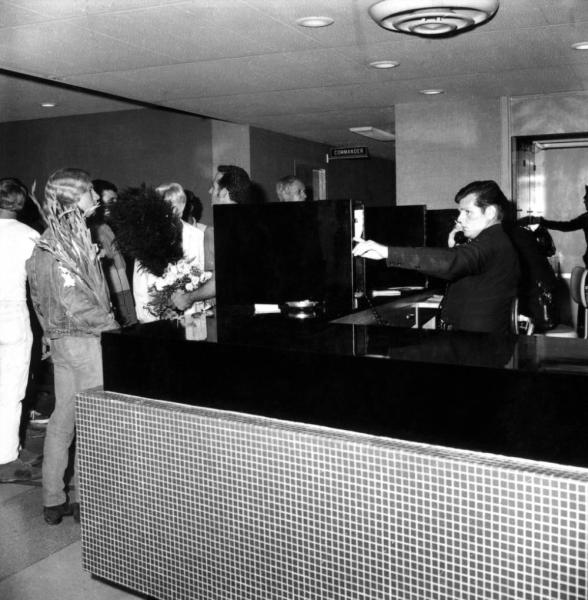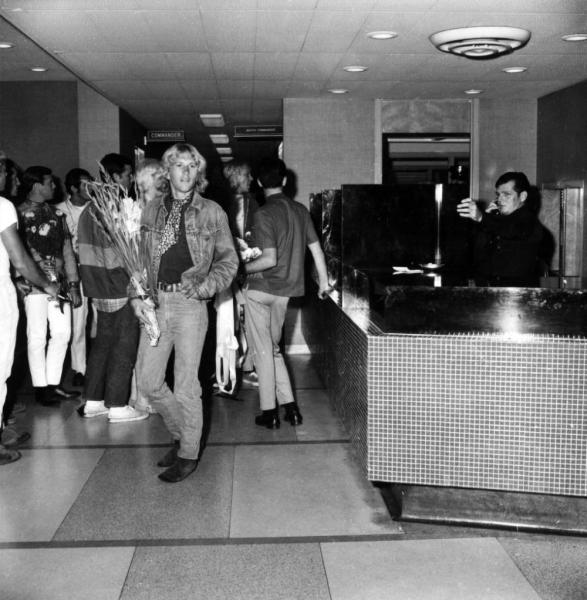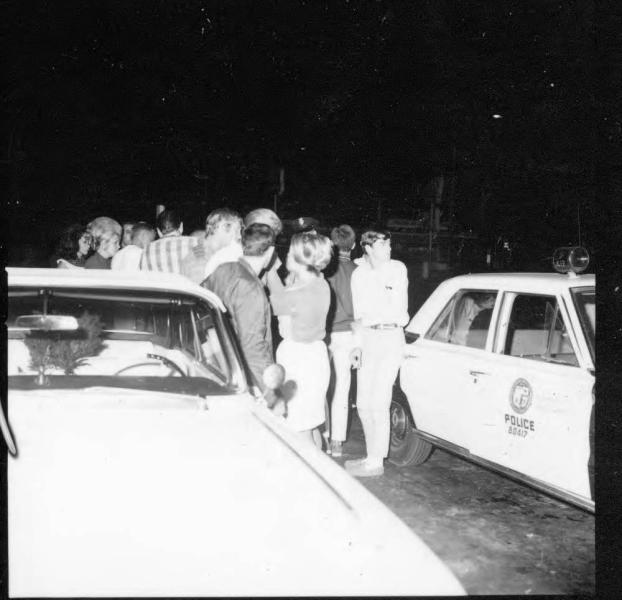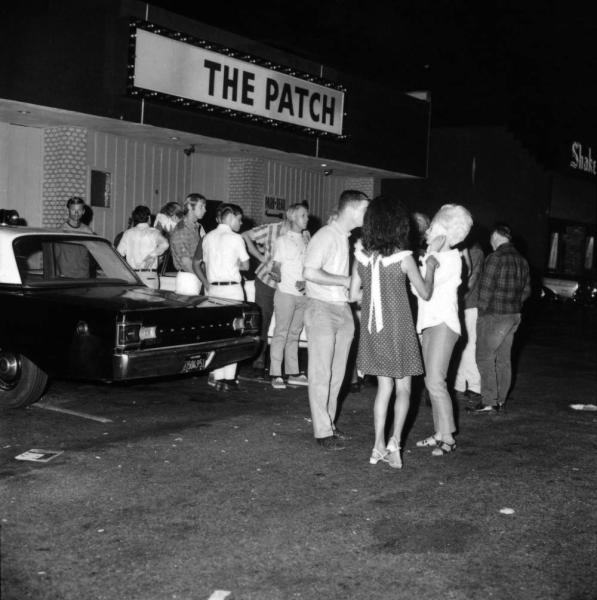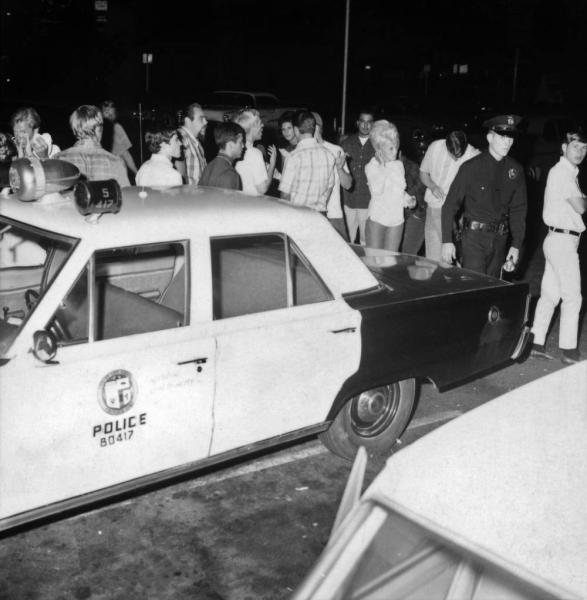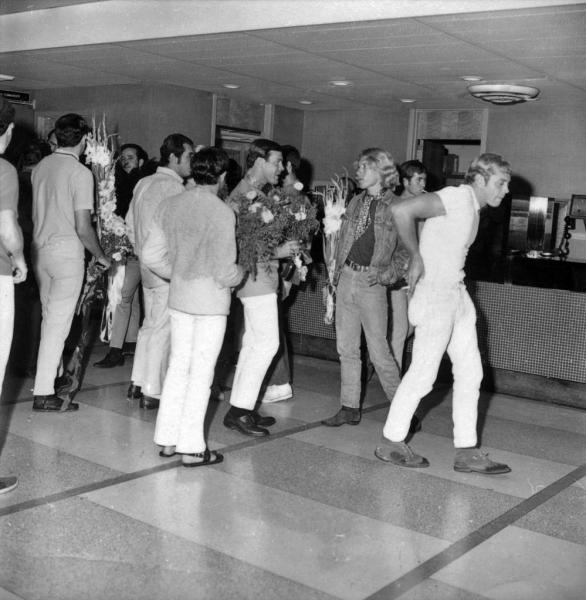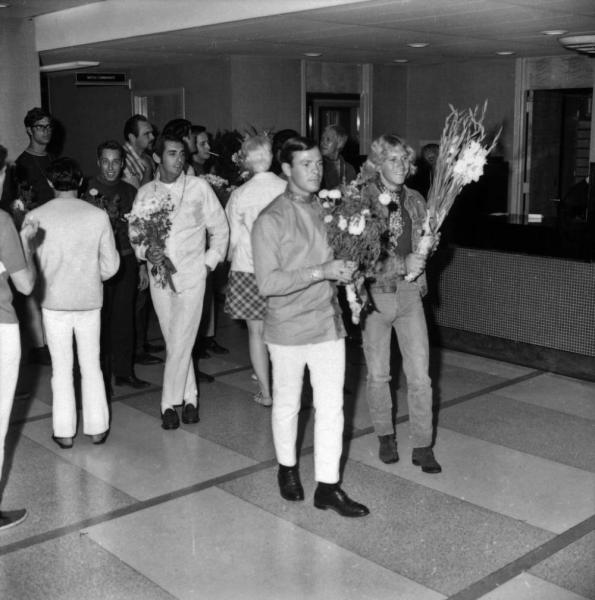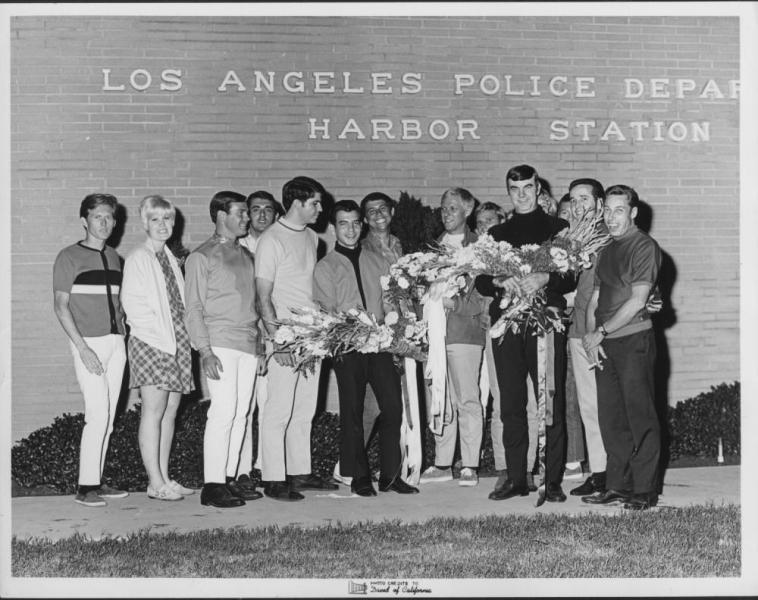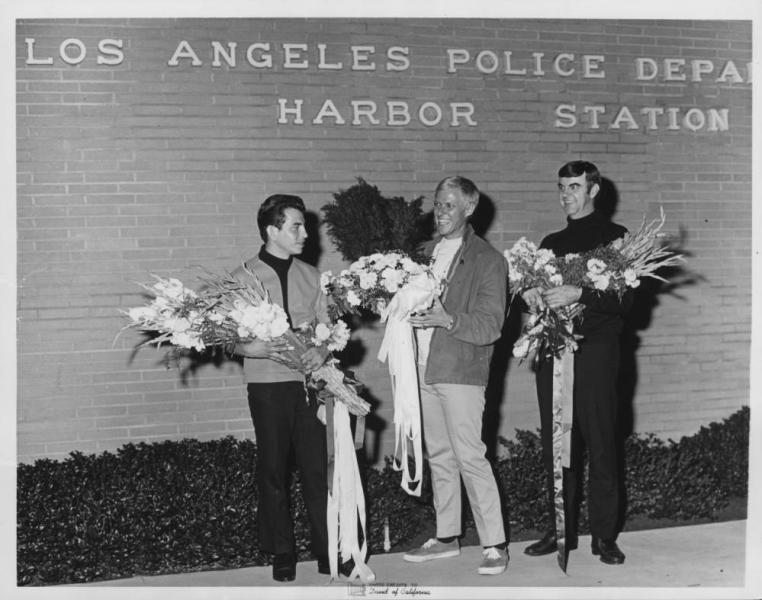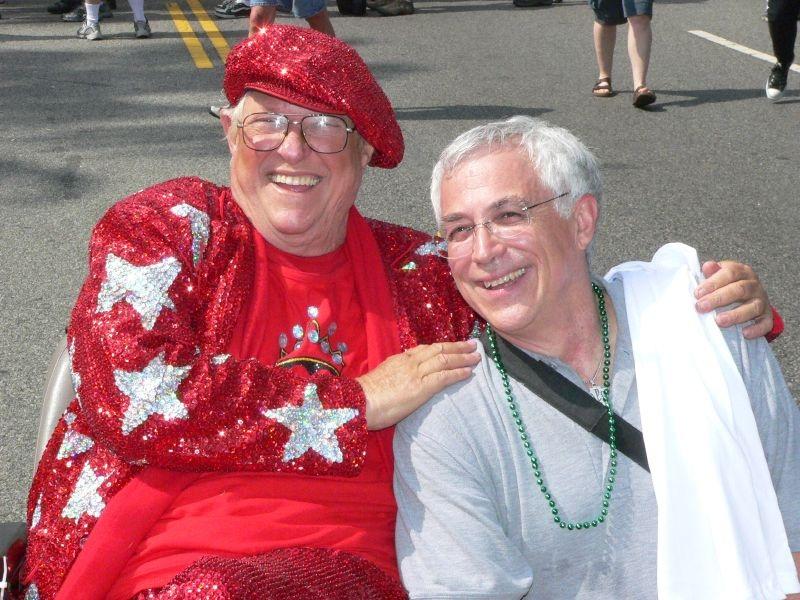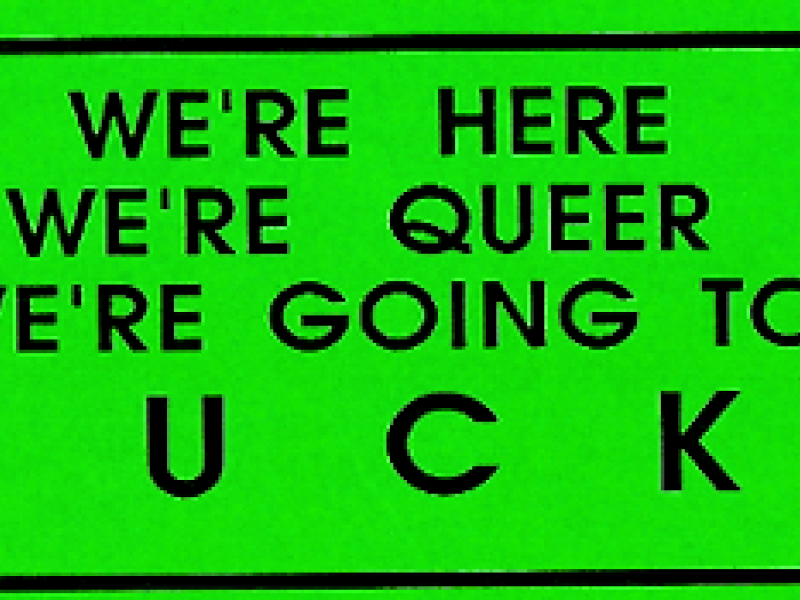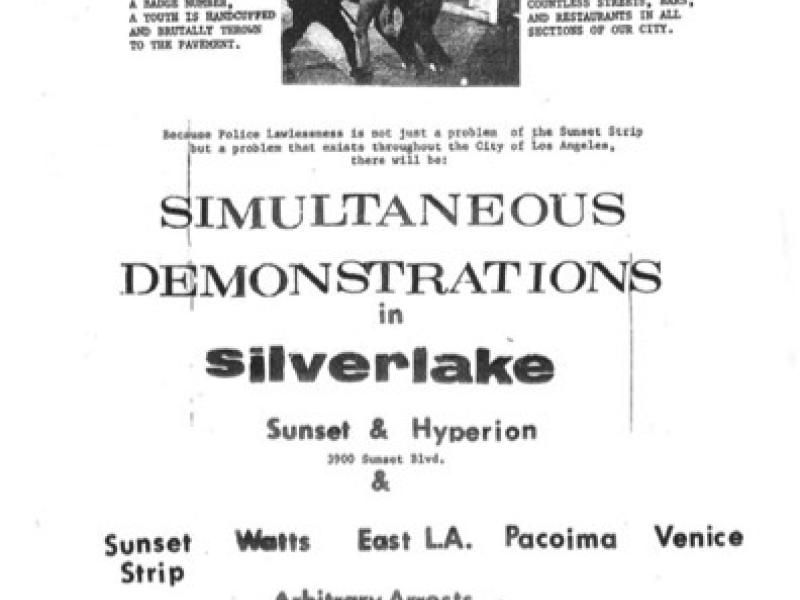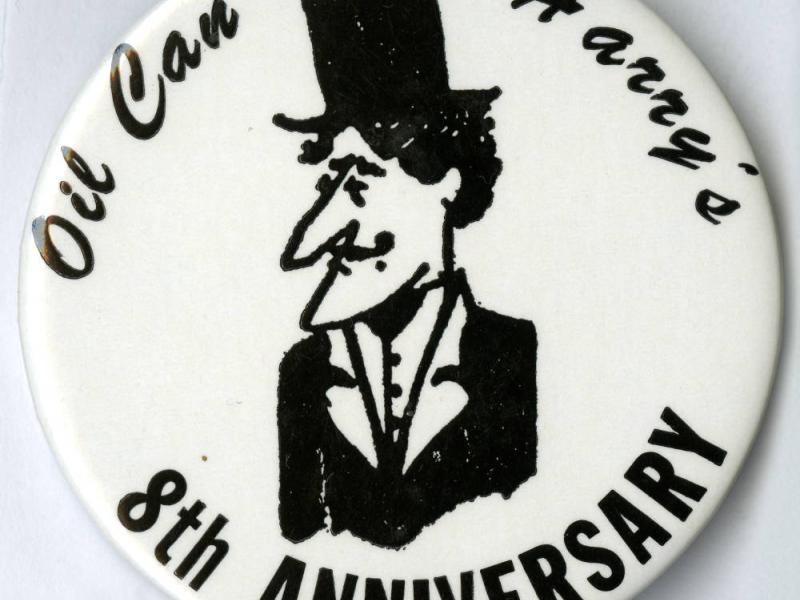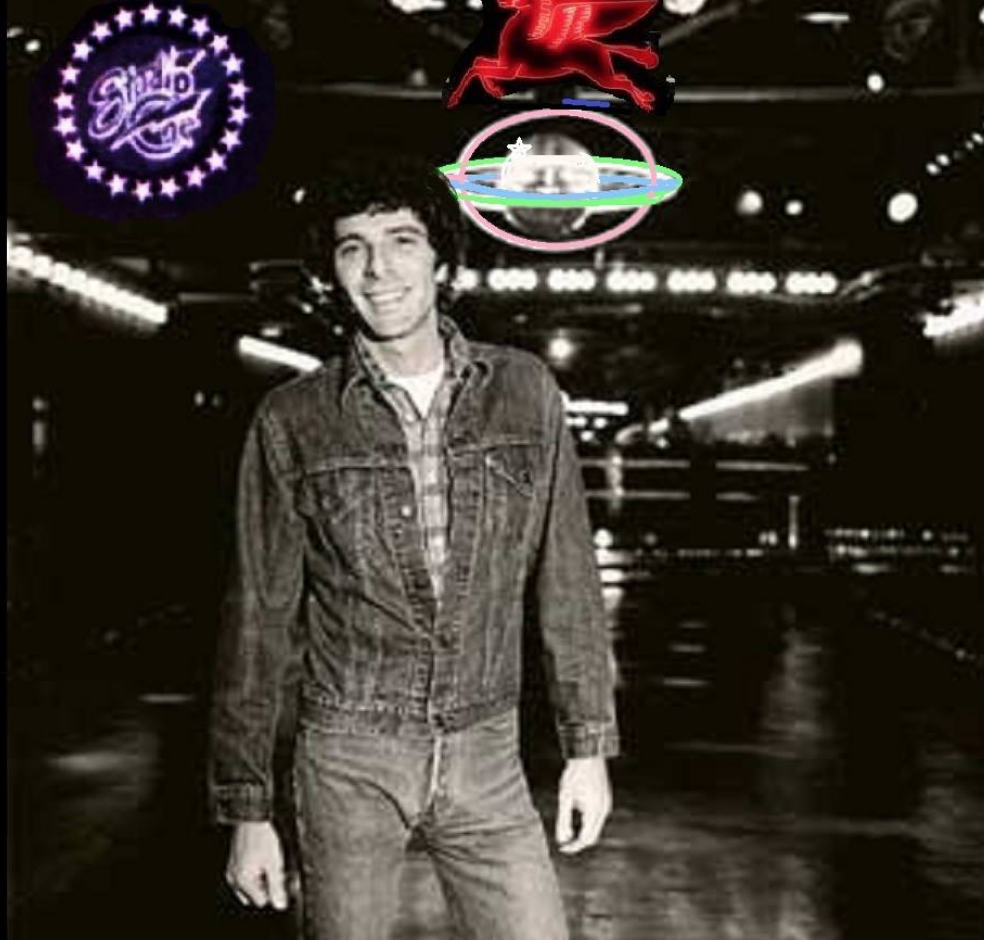The Patch was a gay and lesbian bar in Wilmington, California owned and managed by Lee Glaze. Operating in a time of strict California laws against homosexual activity, Glaze had been warned repeatedly by the LAPD that in order to legally stay in business, he was required to prohibit drag queens, prevent men from dancing together, and refuse to allow more than one person at a time to enter the bar bathrooms. At this time, homosexuality was effectively illegal in California, as was any form of dressing that did not match one's assigned gender in the eyes of the law. As a result, undercover police vice squads often targeted the gay and lesbian bars of Los Angeles, raiding the establishments and subjecting patrons to harrassment and arrest on exaggerated charges.
Despite the warnings, Lee Glaze, nicknamed "The Blond Darling" and often pictured surrounded by his drag queen friends, encouraged all of the banned behavior among his bar patrons. Instead of enforcing any of the bans, he instead established a secret signal: when Glaze spotted vice police officers entering The Patch, he would play the song "God Save the Queen" on the jukebox. Patrons would then comply with the police rules to avoid persecution until Glaze gave the all-clear signal.
However, despite Glaze's warning system, on August 17th, 1968, when undercover vice police officers entered The Patch, frustrations over ongoing police harassment came to a head. Accounts vary on the exact events that led to the police arresting two patrons; some assert that the officers witnessed a man flirtatiously touching another man's behind, while others say Glaze impulsively singled out the officers from onstage and taunted them, apparently chiding the LAPD for sending such "homely" officers. The undercover officers then left, but returned around midnight with five to six uniformed officers as backup. Regardless of the exact string of events leading up to to the arrests, the accounts of the outcome are constant: the police fanned out and began screening the crowd, demanding to see patron IDs — a common form of police harrassment against LGBTQ citizens that left anyone whose outward appearance didn't "match" their assigned gender vulnerable to being arrested for cross-dressing, or "masquerading" as it was often called. Two bar patrons were arrested on charges of lewd conduct, and Lee Glaze was enraged by this, as he knew the charges could only be false because the two arrested men were competing for the attention of the same man, but held no romantic interest in each other. "How could you possibly arrest two queens that hated each other?" Glaze recalled in a 1994 interview.
Regardless, while the police were still present in the bar, Glaze jumped on stage and addressed the crowd of patrons: "It's not against the law to be a homosexual, and it's not a crime to be in a gay bar!" He then rallied his customers to chant "We're Americans too!", and promised that he and The Patch would post bail for the arrested men. Eventually, Glaze led the crowd of incensed patrons into a flower shop owned by one of the customers present that night, and together they bought massive quantities of carnations, roses, daisies, gladioli, and mums. With arms full of flowers, the crowd continued on to the Harbor Division Police Station. As Troy Perry, boyfriend of one of the arrested men and founder of the Metropolitan Community Church, later recalled in an interview:
"When we arrived at the police station, Lee told the officer at the desk, 'We’re here to get our sisters out.' The officer asked, 'What are your sisters’ names?' When Lee said, 'Tony Valdez and Bill Hasting,' the officer had this surprised look on his face and called for backup. They didn’t know what to do with all the gay men waiting in the lobby. …Lee showed me you don’t have to be afraid of the police. Once that happened, it encouraged me to become a gay activist."
Lee Glaze and his gathered patrons camped out in the police station waiting room for the duration of the night, waiting for bail to be posted for their arrested friends. An officer is said to have warned the crowd with "One flower hits me, and you're going to be charged with assault on a police officer." The protest, now referred to as the Flower Power protest, remained entirely peaceful, with no further altercations or arrests made while the assembled crowd milled about the police lobby. One account claims that the protest took place over the course of two hours, while others including the Los Angeles asserts that the bondsman arrived and posted bail soon after the caravan of protestors arrived, but the officers themselves held the two men for several more hours before dropping the charges and releasing them at dawn.
The Flower Power protest spearheaded by Lee Glaze and The Patch marked the rare instance of a gay bar surviving the aftermath of a police raid; rather than flee and never return to The Patch, customers not only protested with Glaze, but returned to the bar after the event. Lee Glaze expressed his gratitude to his patrons in a letter to The Los Angeles Advocate:
"If all gay bars had customers such as mine, there would be no further harassment from various agencies such as the ABC the police, and the so-called 'straight' public. Throughout these problems their attitude has been “We’ re doing nothing wrong. We re hurting no one. There is nothing illegal about being in a gay bar. There is nothing Illegal about a bar being gay. And we’re staying. Period.
These people have finally had it. They’re standing up for their rights as individuals."
In the months following The Patch Flower Power protest, numerous queer activist organizations were founded in Long Beach and the surrounding Los Angeles area, including a legal aid group and the aforementioned Metropolitan Community Church founded by Troy Perry, inspired into inception when Tony Valdez, one of the men arrested that night, turned to Perry and said "God doesn't care about us." The MCC has now grown to a congregation of over 43,000 members.
